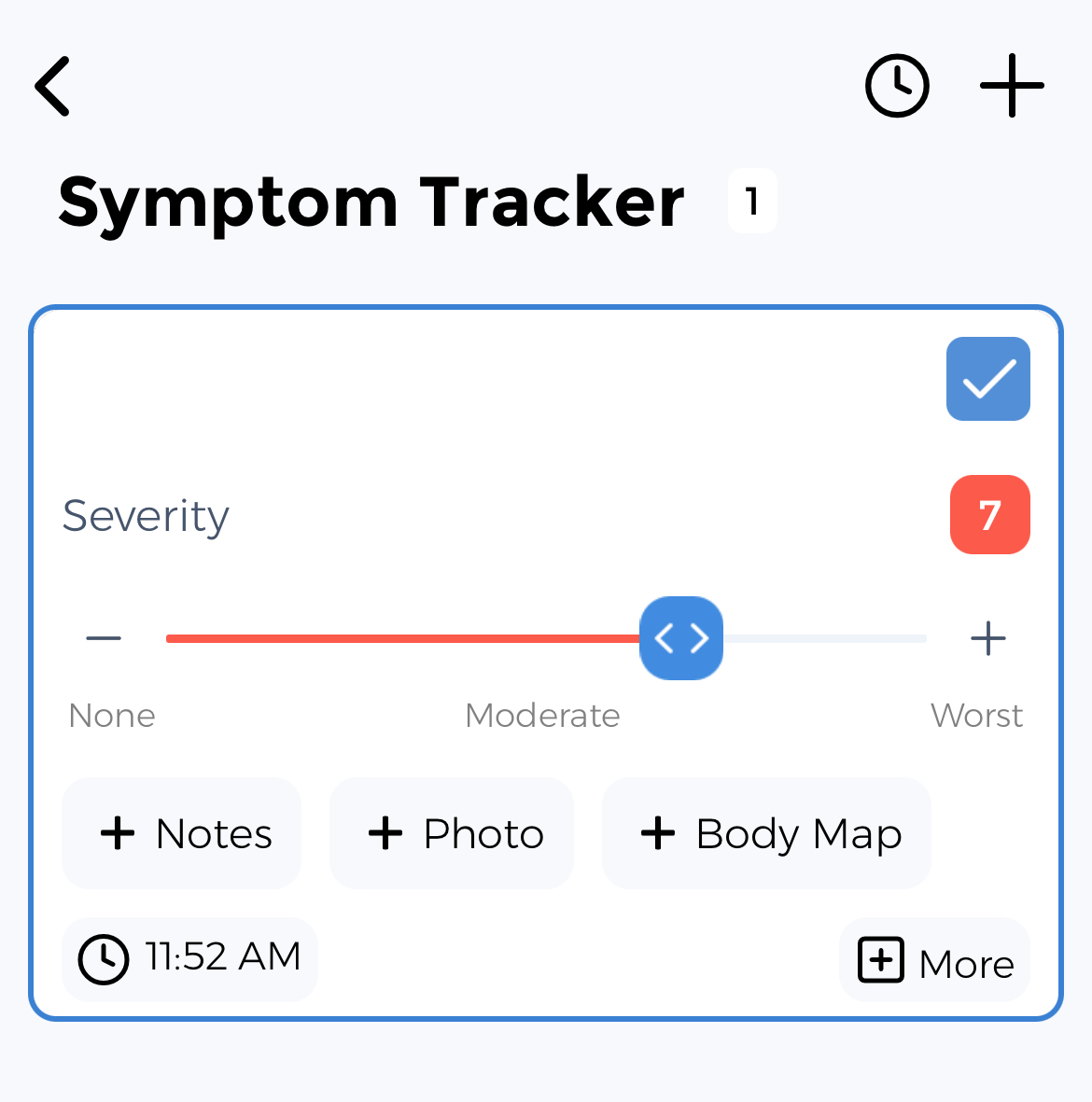Atrial Septal Defect Symptom Tracker: Your Health Assistant
Living with Atrial Septal Defect means dealing with shortness of breath, fatigue, heart palpitations, and more. But here's the truth: Data is your most powerful tool. Every logged symptom reveals patterns—so you can take informed action.
Atrial septal defect (ASD) is a congenital heart defect where there is a hole in the wall between the heart's upper chambers (atria). This allows oxygen-rich blood to leak into the oxygen-poor blood chambers. Tracking symptoms helps monitor the condition and detect complications early.
Key Atrial Septal Defect Symptoms You Should Track
Struggling with symptoms like these? Tracking them reveals patterns, triggers, and how they impact your daily life.
Shortness of breath
Fatigue
Heart palpitations
Swelling in extremities
Frequent respiratory infections
Stroke
Heart murmur
Exercise intolerance
Bluish skin discoloration
Poor growth in children
Track Your Atrial Septal Defect Treatments
Tracking how these common treatments affect your symptoms can help you and your healthcare provider optimize your care plan:
Our tracker helps you monitor when you take medications and how they affect your symptoms over time.
Standardized Atrial Septal Defect Assessments
Complete these evidence-based assessments in the App to measure your severity and monitor your progress:
⚡ Knowledge Is Your Superpower
The difference between feeling overwhelmed by Atrial Septal Defect and feeling in control starts with data. When you track your symptoms, you transform uncertainty into clarity. Every data point brings you closer to understanding your unique patterns.
It's free to try for anyone—whether you're managing your own condition, supporting a child, helping an aging parent, or assisting a partner. Our tracker adapts to your specific role in the health journey.
How the CareClinic Atrial Septal Defect Symptom Tracker Adapts to Your Needs
Adults
Caregivers
Parents of Children
Young Adults
Your Complete Atrial Septal Defect Management Toolkit
Uncover Patterns & Insights
Map your Atrial Septal Defect symptoms like a detective solving a case.
Understand Your Medication's Impact
Turn guesswork into strategy. See how treatments affect your well-being with clear health insights.
Objectively Measure Your Progress
Use clinically validated tools to objectively measure your progress.
Other Tools You May Like...
Plus 2 more specialized tracking tools available
Access All Tracking ToolsAlso Supports Other Conditions Like
Congenital Heart Defects Tracker
Congenital Heart Defects warriors use our tracker to monitor cyanosis (bluish skin), rapid breathing.
Heart Failure Tracker
Heart Failure warriors use our tracker to monitor shortness of breath, fatigue.
Stroke Tracker
Stroke warriors use our tracker to monitor numbness or weakness, confusion.
Success Stories from Our Community
"When traditional approaches weren't enough, this tracker finally helped me managed to reduce my medication with my doctor's guidance. I can now understand how my medications actually affect me which has changed everything."
"Living with Atrial Septal Defect felt overwhelming until I started tracking systematically. I finally could show my doctor exactly what was happening after just 17 months of consistent logging."
Take Control of Your Atrial Septal Defect Journey
Transform from feeling like a passive patient to becoming an informed self-advocate. Join thousands who've discovered new insights about their condition.
Designed by people who understand the daily challenges of managing chronic conditions, we're here to support you and your ❤️ ones.
Download Your Atrial Septal Defect Tracker NowYour Data is Protected
Private & Secure
HIPAA Compliant
GDPR Compliant
Never Sell Data
Your data is yours: You get full control over who can view your information. CareClinic keeps all your data secure and encrypted.
References based on studies by:

